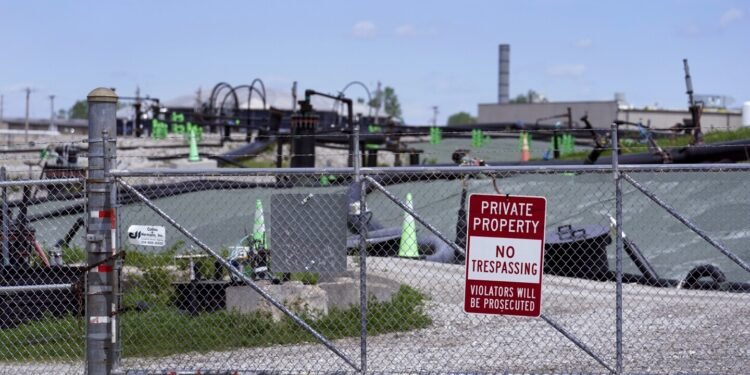WASHINGTON (news agencies) — The Senate passed legislation Thursday that would compensate Americans exposed to radiation by the government by renewing a law initially passed more than three decades ago.
The bill by Sens. Josh Hawley, R-Mo., and Ben Ray Lujan, D-N.M., would expand the Radiation Exposure Compensation Act to include more people who believe their illnesses were caused by that exposure. While many Republicans have balked at the cost — an estimated $50 billion, according to Hawley’s office — the senators have argued that the government is at fault and should step up.
Hawley stood outside the Senate before the vote with advocates for the legislation, several of whom have been diagnosed with cancers or who have family members who have been diagnosed. He said it’s “hard to look them in the eye” and say they were poisoned by their government, “but we’re not going to be there for you.”
The bill passed the Senate 69-30, with 20 Republicans and all but two Democrats voting in favor. But its prospects in the House are uncertain.
Uranium processing in the St. Louis area played a pivotal role in developing the nuclear weapons that helped bring an end to World War II and provided a key defense during the Cold War. But eight decades later, the region is still dealing with contamination at several sites.
In July, an investigation published by media, The Missouri Independent and MuckRock showed that the federal government and companies responsible for nuclear bomb production and atomic waste storage sites in the St. Louis area were aware of health risks, spills, improperly stored contaminants and other problems but often ignored them.
While it is difficult to prove definitively that residents’ illnesses were caused by the waste, the advocates argue that there is more than enough evidence that it has sickened people in the area.
“I am a two-time breast cancer survivor,” said Missouri state Rep. Chantelle Nickson-Clark, a Democrat who represents Florissant, an area that sits along the creek that was contaminated by nuclear waste in the 1960s. “I lost my mother to breast cancer, an aunt to breast cancer. Two cousins that are breast cancer survivors, a nephew that had a cancerous brain tumor and other genetic mutation deficiencies in my family. I’m here to represent a community that has been underserved, undervalued, underrepresented and unheard.”



 Pakistan Rupee Exchange Rate
Pakistan Rupee Exchange Rate





